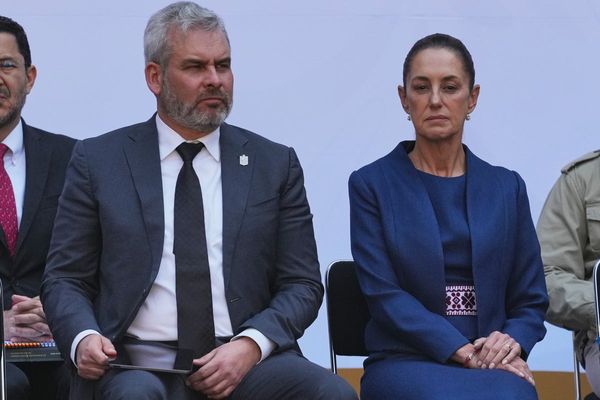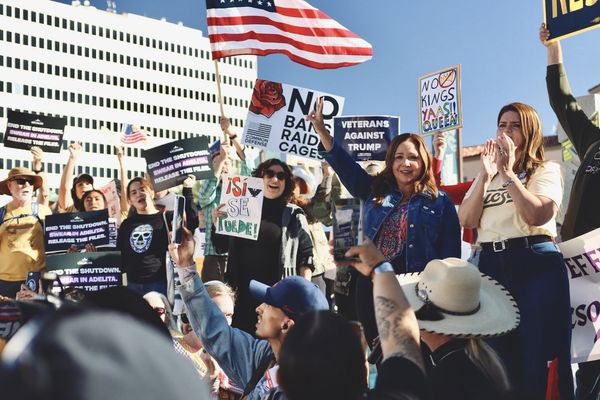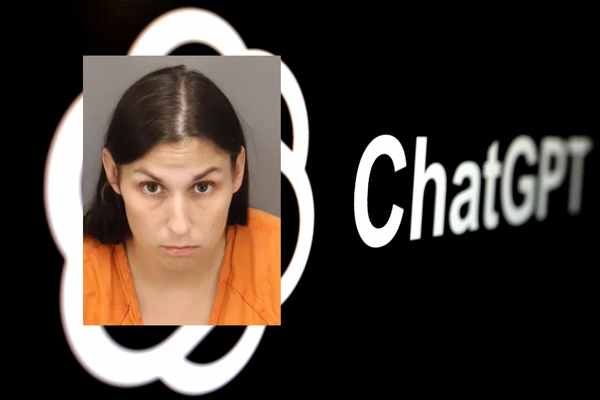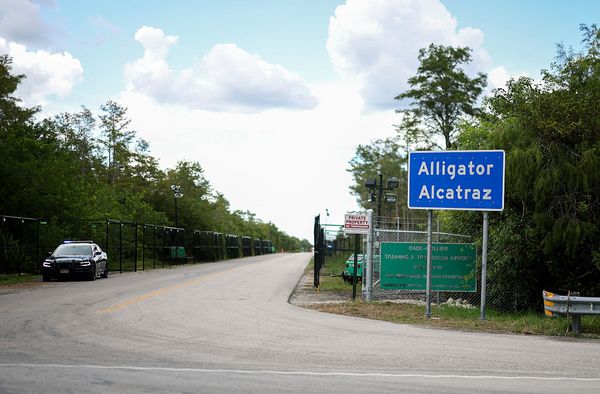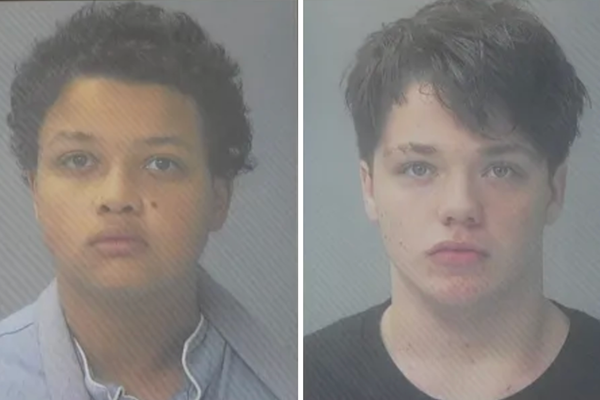Doctors no longer have the support of the public for strike action, Wes Streeting has warned, urging them to vote against proposed walkouts this week.
Resident doctors in England, formerly known as junior doctors, are demanding a massive 29 per cent pay uplift to end the ongoing cycle of strikes that has caused “so much harm to patients and the wider healthcare system”.
They have started receiving ballots for renewed industrial action after ministers last week announced that most doctors would receive a 4 per cent pay rise following the latest review of public sector pay, with resident doctors to receive an extra £750 on top of the uplift.
While the British Medical Association (BMA), the union representing doctors, said the pay rise does not go far enough in restoring historical pay freezes, Mr Streeting warned: “We can’t afford to return to a continuous cycle of stand-offs, strikes, and cancellations.”
Resident doctor members of the BMA have taken industrial action 11 times since 2022, with NHS England estimating the walkouts led to almost 1.5 million appointments being cancelled or rescheduled.
Writing in The Times, Mr Streeting said: “The public supported the previous strikes against a government delivering real terms cuts to resident doctors’ pay. But patients are now opposed to strike action.
“Following the significant pay rises delivered over the past ten months, they can see that this government is committed to a fair deal for NHS staff. Nor do patients want to see the green shoots of recovery choked off by strike action.”
His comments mark a drastic shift in tone from the approach he took last year, when he brought months of strike action to an end by handing them a 22 per cent pay rise within weeks of entering office. This year, they were awarded another inflation-busting pay rise of 5.4 per cent.
He has now appealed to doctors to vote ‘No’ in the ballot and instead “continue the progress we’ve made, working together to rebuild our NHS.”
“Strikes should always be a last resort, and I don’t think they are in anyone’s interest today”, he warned.
It came after a new poll of 4,100 British adults by YouGov found that 48 per cent of Britons oppose resident doctors going on strike, while 39 per cent support them taking action.
YouGov said this “marks a shift in opinion” of public support of striking junior doctors last summer, when the majority of Britons – 52 per cent – said they supported it.
It highlighted how Labour supporters were most supportive of strike action, with Conservatives expressing the strongest opposition.
But warning that “fixing pay….cannot wait for different fiscal circumstances”, junior doctors have now asked for their pay to be restored to 2008 levels, which they argue would require a 28.7 per cent rise when taking inflation into account.
Dr Melissa Ryan and Dr Ross Nieuwoudt said: “Last week the government finally told us what it would do to restore the pay of doctors: almost nothing.
“Doctors have seen their pay decline by 23 per cent in real terms since 2008. No doctor today is worth less than they were then, but at the rate the Government is offering it would be over a decade before we once again reached that level of pay.
“As ballots once again fall through doctors’ letterboxes, we are simply saying: the NHS does not have that time. Waiting lists are too high, too many people can’t see their GP, too many patients are being treated in corridors.
“Doctors need to be kept in the country and in their career not in 10 or 20 years’ time, but now.”
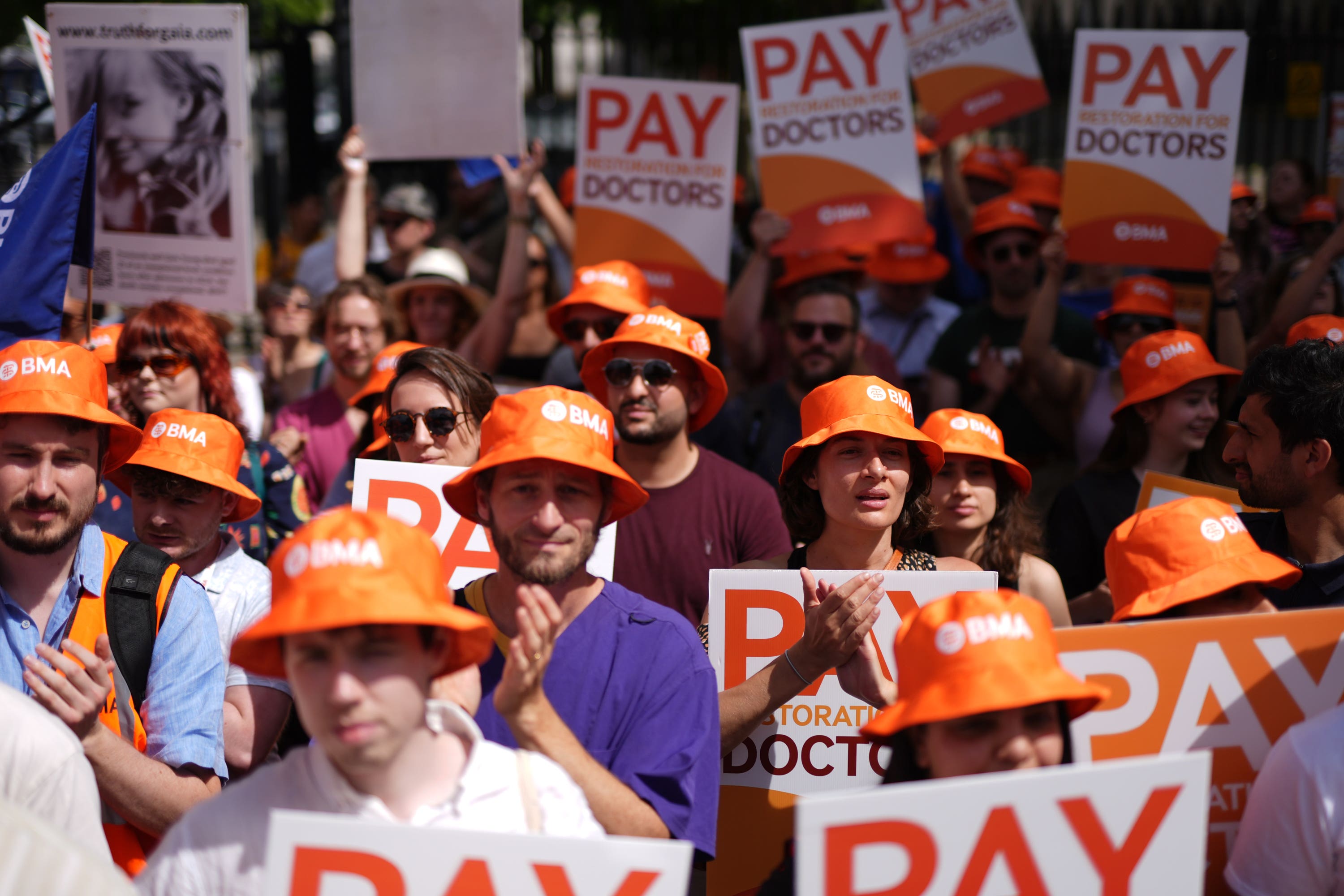
Earlier this week, writing in The Independent, Mr Streeting admitted the NHS treats doctors “like crap”, acknowledging that pay was not the only thing doctors were unhappy about.
“They are rightly angry about the way they are treated by their employer. So am I”, he said.
“The NHS can be a bad employer at the moment, which ends up being bad for taxpayers and patients too. We spend hundreds of thousands of pounds training people, only to treat them like crap and cause them to leave to work in another health service or another career altogether.”
Speaking to Sky News, water minister Emma Hardy urged junior doctors to vote against strike action and “continue talking to the government, because we need to continue to deliver the improvements in our NHS that patients desperately need.”
“We hugely value everybody who works in the NHS, and we hugely value our doctors. That's why they've had a 20 year increase in their salary compared to three years ago, and why we're offering an above inflation pay rise”, she said.
The increase that was recommended by the independent pay review body is above the rate of inflation, which jumped to 3.5 per cent in April, up from 2.6 per cent in March and the highest since January 2024.
But Professor Philip Banfield, the BMA’s chairman of council, warned that doctors’ pay is “still around a quarter less than it was in real terms 16 years ago”, adding that the pay award “delays pay restoration even more, without a government plan or reassurance to correct this erosion of what a doctor is worth.”
Dua Lipa and Gary Lineker join stars calling PM to halt all arms sales to Israel
Streeting tells doctors to help ‘rebuild our NHS’ amid strike action ballot
Military families ‘struggling’ with their homes during VE Day celebrations – MP
UK-US trade deal thrown into chaos by Trump tariff ban - where do we go from here?
Farage’s ‘fantasy’ economics will lead to Liz Truss-style meltdown, Starmer to warn
Portugal's Chega party becomes the main opposition and joins Europe's far-right surge
